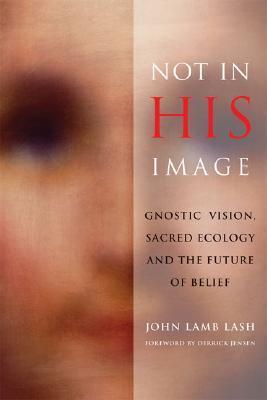There's a lot on the Web about John Lamb Lash. Some of the data is contradictory. On the one hand, he's represented as an autodidact, as a college dropout. On the other, a PhD is attributed to him. There's even disagreement about his birthdate. Given the sketchy, eccentric character of this book I strongly suspect he had little academic training.
The book is not entirely without merit. The critique of Abrahamic 'dominator' religions as being anti-nature is certainly worthy of consideration, Christianity in particular having a poor historical record, its orientation being otherworldly. Its advocacy of deep ecology is something I appreciate.
However, Lash's appropriation of the historical record is, most charitably stated, extremely tendentious. For one thing, he claims an essential unity to 'pagan' traditions in general and to pagan mystery cults in particular, setting them in opposition to the monotheistic religions without much recognizing that these very pagan traditions were the matrix out of which the Abrahamic religions arose. Indeed, Judaism, itself of henotheistic Hebrew roots, is hardly of a class with its semi-derivatives, Christianity and Islam. As regards the assertion of pagan unanimity, the record certainly does not support his bold claim. Indeed, he seems unaware of much of the counterevidence. For instance, he asserts that pre-Christian Europeans did not practice human sacrifice (p. 49). Is he unaware of the archaeological evidence of the Bog-sacrifices in Denmark? of the ancient Roman practice of live burial? of Moloch offerings in Punic Europe? of the Roman accounts of Druidic practices? What is one to make of his repeated assertion of the 'life affirming' culture of what he calls 'Europa' in the face of the misogyny, the slavery, the wars, the infanticide, and the slaughters recounted in the pagan histories and evinced by the discoveries of the archaeologists? (and where, for that matter, does he get the idea that the mass suicide at Masada occurred in 86 C.E.?) Lash's rosy representation of an idyllic pre-Christian Europe is as absurd as much of the Christian apologetic!
To make matters worse, Lash adopts the recently invented term 'Gnostic' to typify his supposedly univocal mystery cults, entirely ignoring its normative scholarly application to beliefs which were radically dualistic. Instead, he picks and choses, focusing on the occult texts in the tradition of the 'Pistis Sophia' and, to make matters worse still, attempts to reconcile a dubious reading of them to modern physics whereby, incredibly, he treats her, the Pleroma, the Anthropos, the Christos, the Aeons and the Archons as if they were real, substantial beings and the myth, treated in such a way, as reconcilable with contemporary science. His three-planet thesis and this business as a whole makes one wonder not only about the author's scholarly aptitude but about his very sanity.
This is definitely not a book for those unfamiliar with European antiquity and the history of religions, nor is it worthy of the attention of those who do have such familiarity.
PS For some reason the 'date started' function in Goodreads isn't working today. I started this book at Xmas, having received it as a gift.

